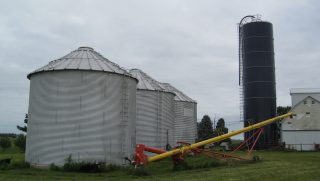In the agriculture industry, we are always looking to better our surroundings and help out our neighbors. To continue that tradition, a new mentorship program is linking historically underserved farmers and ranchers with award-winning conservationists.
“There’s often a steep learning curve when it comes to adopting conservation practices in agriculture,” said Dr. Heidi Peterson, Sand County Foundation’s Vice President of Agricultural Research and Conservation. “Now historically underserved farmers and ranchers have access to a reliable network of conservation mentors.”
Since 2003, the Sand County Foundation’s Leopold Conservation Award has recognized nearly 150 farmers, ranchers and forestland owners nationwide for their efforts to improve soil health, water quality and wildlife habitat. The U.S. Department of Agriculture’s Natural Resources Conservation Service awarded Sand County Foundation a Conservation Collaboration Grant to support this opportunity to empower award recipients as mentors.
“One of the unique features of this mentorship is that the mentors have a wealth of knowledge navigating USDA conservation programs and implementing an array of practices, which they are eager to share,” Peterson said. “For some individuals a one-on-one mentorship may be preferred, but others may like the idea of just having access to a network of experienced, conservation-minded farmers and ranchers to ask an occasional question.”
“Not only will the mentees have the flexibility to tailor the program to their personal needs, goals and time, but they will also have the opportunity to join in on virtual field days and webinars featuring conservation-topic experts,” Peterson said.
Learn more and sign up for this free mentorship opportunity on their website.
The USDA defines historically underserved farmers and ranchers as those with limited resources, and those who are beginners, military veterans, or members of a socially disadvantaged group. Research shows that historically underserved farmers and ranchers are more likely to operate on environmentally-sensitive land near water bodies.


